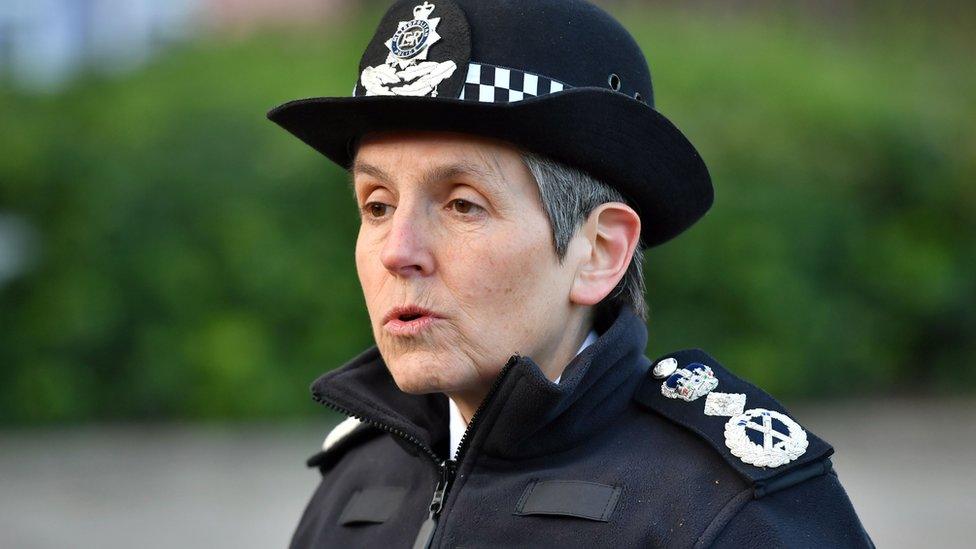'Enough police' to tackle violence rise - Amber Rudd
- Published

Falling police numbers are not to blame for rising violence and a new approach is needed, the home secretary has said.
Writing in the Sunday Telegraph, external, Amber Rudd said evidence did not back up claims that reduced resources were the cause of more crime.
Labour said police numbers were a factor and accused Ms Rudd of having her head "stuck in the sand".
More than 50 people have been killed in violent attacks in London since the start of the year.
In the latest incident, a woman was arrested on suspicion of attempted murder on Saturday night after a man was stabbed outside Highbury and Islington station in north London.
On Monday the government will unveil a new strategy to tackle serious violence, including an Offensive Weapons Bill for England and Wales, with new rules on the carrying of knives and acid.
In her article, Ms Rudd said police numbers were rising in the early 2000s - when serious violent crimes were at their highest.
But, speaking on the BBC's Andrew Marr programme, the shadow education secretary Angela Rayner said Ms Rudd had "stuck her head in the sand" and that suggesting police numbers had little effect was "a very naive position".
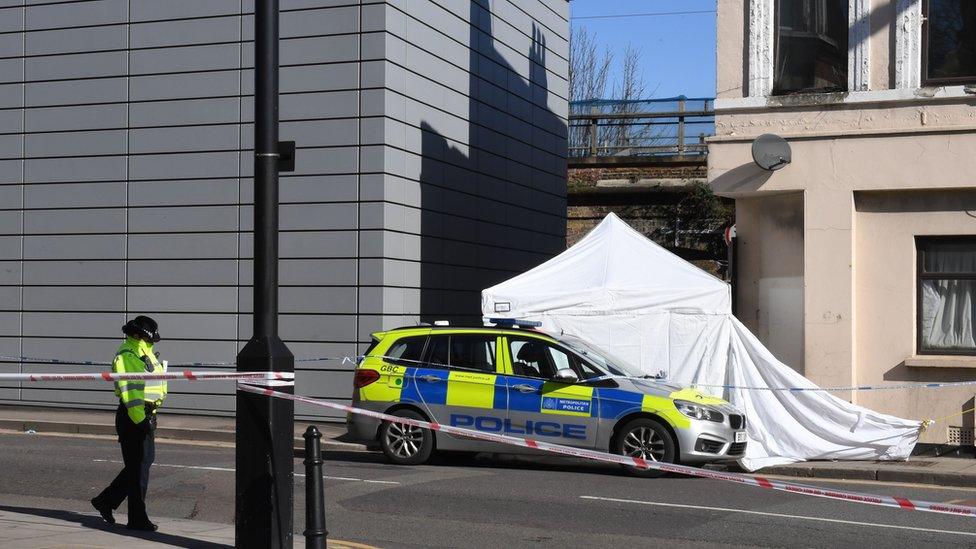
There have been more than 50 killings in London this year
"We've seen cuts to youth services, education, children's services and all these wrap around services that we know support our young people," she told the Andrew Marr programme.
Stop and search 'vital'
The government has defended its current policy on "stop and search", which Ms Rudd described as a "vital policing tool".
Speaking on Andrew Marr, Communities Secretary Sajid Javid told the BBC the government would consult on extending the powers of stop and search, so that those who may be carrying acid could also be searched by police.
Mr Javid said there was "a real problem", but that the new weapons bill would make a "big difference" to the rate of crimes.

What does the Offensive Weapons Bill propose?
Tough restrictions on online sales of knives - preventing them from being posted to residential addresses
It would also become illegal to possess in private certain weapons such as zombie knives and knuckle-dusters
A ban on the sale of the most dangerous corrosive products to under-18s
A consultation on extending stop and search powers to enable the police to seize acid from people carrying it in public without good reason
Making it an offence to possess a knife on a further education premises

Ms Rudd said the government's new Serious Violence Strategy would "radically change" how the rising violence is addressed.
Crime minister Victoria Atkins said it would be focused on education and prevention.
"So before a young person thinks of picking up a knife we want them to stop, to have the skills to say no, to be resilient," she told the BBC.
As well as introducing new laws and powers, Ms Rudd pledged to work with representatives from local government, health, education and industry to address the root causes of crime.
She said the drug trade would be highlighted as a "key driver" of rising violence and pressure would be put on internet companies to clamp down on the incitement and glorification of violence on social media.

'Not just angry young men'

Mo Timbo says there are many issues which lead young men to gang culture
Mo Timbo - now a pastor in Hull - grew up in Peckham in south-east London.
From the age of 14 he was heavily involved in gang culture, and sold drugs like cannabis and heroin.
"By the age of 19, I'd been stabbed, arrested several times and I found myself serving time in prison," he told Radio Humberside's James Hogarth.
"For the society I was part of, that seemed to be a very normal thing."
Mo agreed with Ms Rudd's assessment that falling police numbers may not be linked to the rise in violence.
"With more stop and searches and more police around, it almost sends a message out to the gangs that it's you against us. So we would stick together to the point where rival gangs would come together as a team against the police," he said.
"It's not down to one thing. There are so many deep issues we need to work on," he added.
"Look at the family - what happens in the household? (If) you're no longer finding that nurturing at home, you're finding it on the streets. I wouldn't say it's just down to angry young men."
- Published7 April 2018
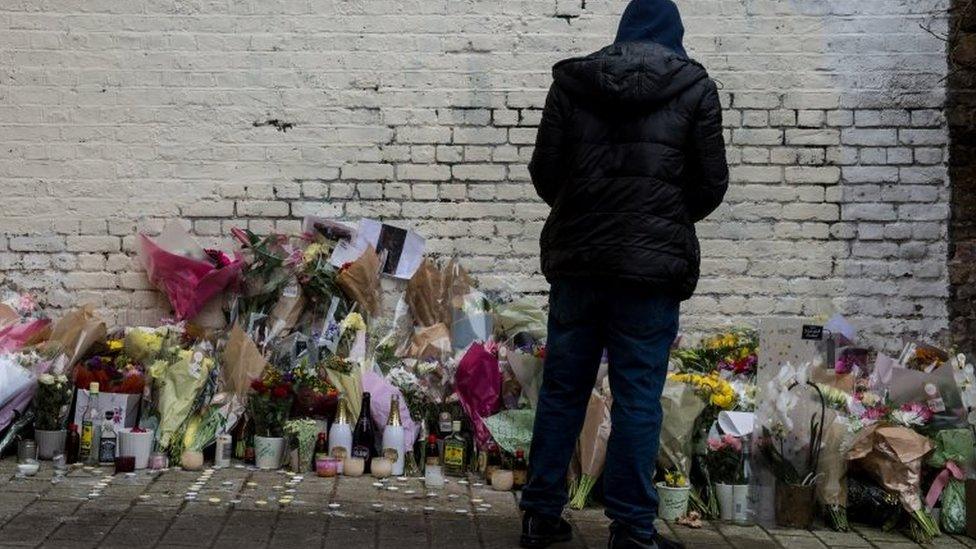
- Published6 April 2018
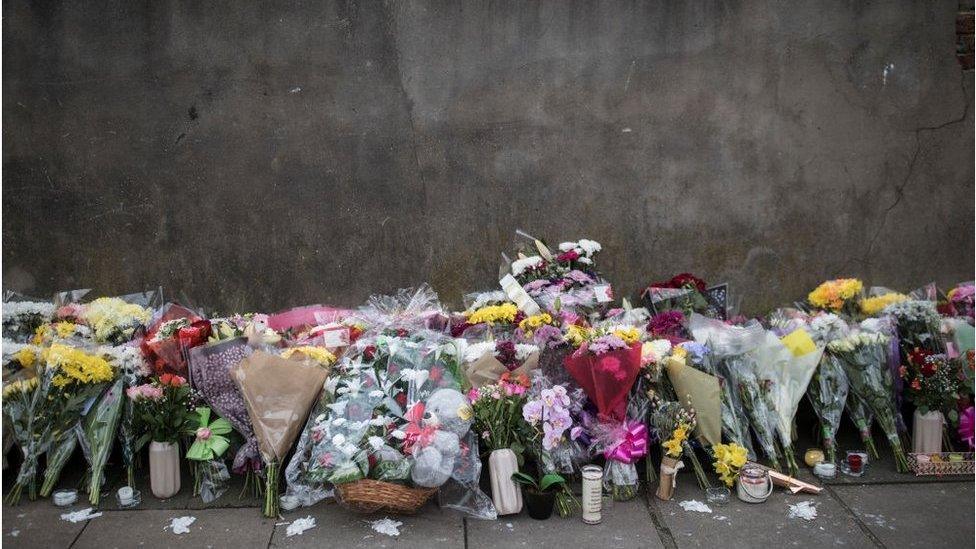
- Published16 April 2018
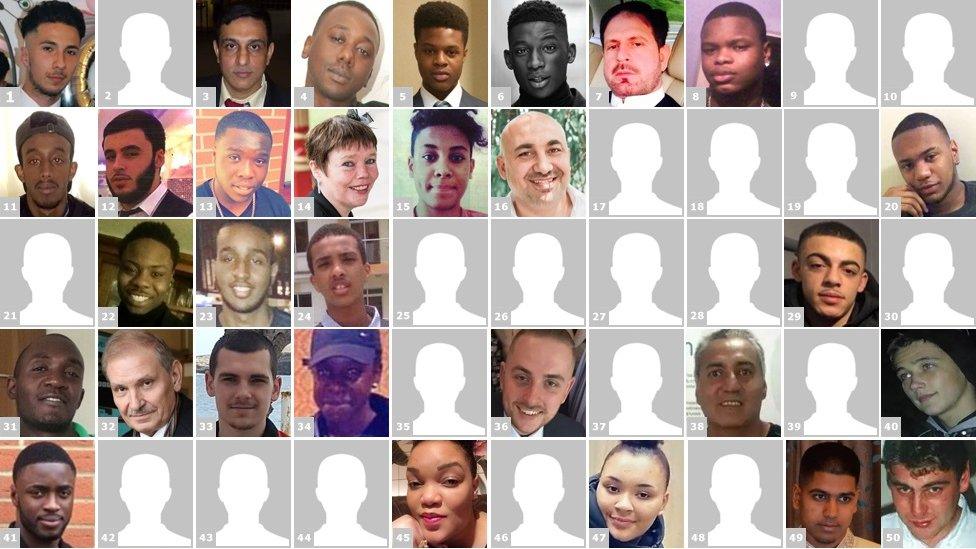
- Published5 April 2018
- Published6 April 2018
